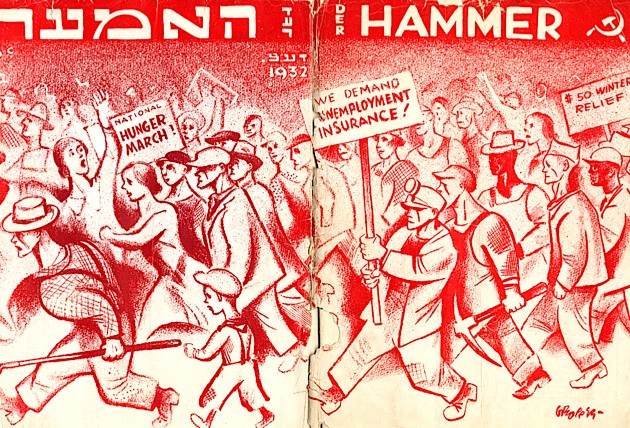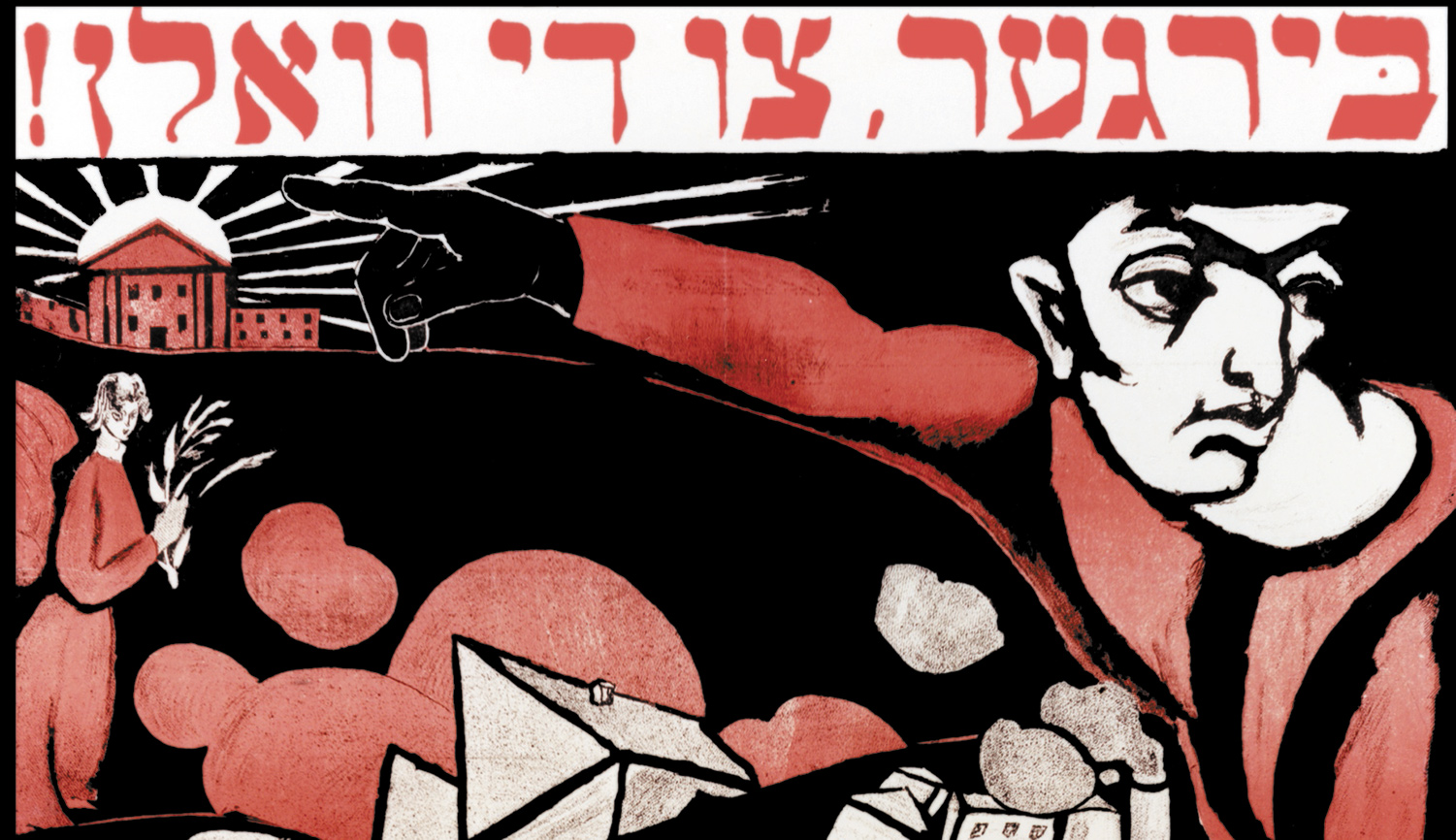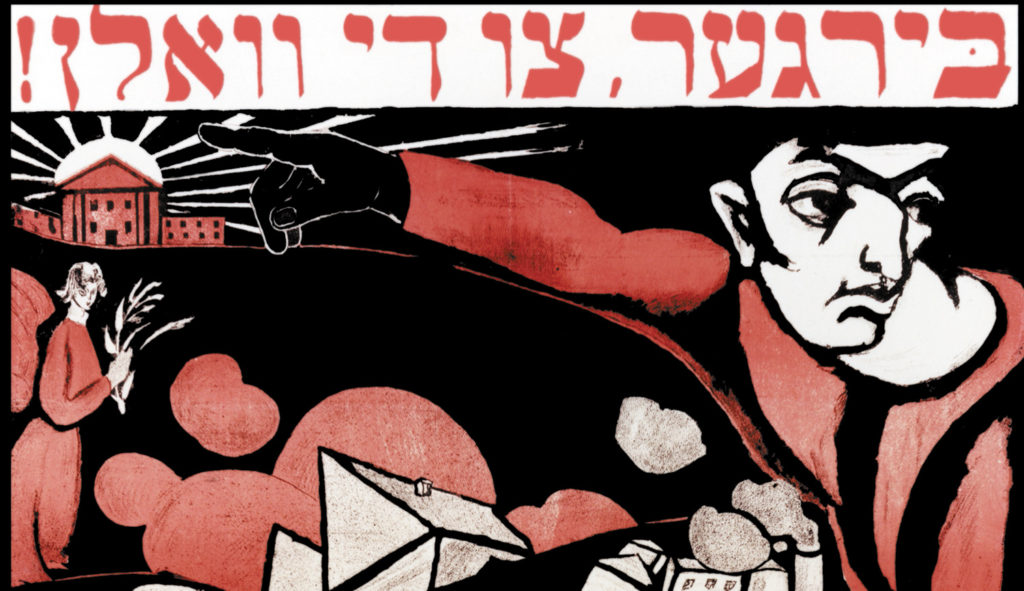How have Jews in the US have gone from an unwelcome immigrant group prone to left-wing radicalism to Zionists and beneficiaries of whiteness? Lane Silberstein investigates.

“There are no allies by divine right.” –Aime Cesaire
With the murders of George Floyd and Breonna Taylor, and now Iyad el-Hallak, a Palestinian in occupied East Jerusalem, I have been thinking about my role as a Jew and a communist and the connections between liberation movements. For leftist Jews in particular, solidarity with people of color and Palestinians necessitates rejecting Zionism and understanding its links to white supremacy and the global color line. The following essay presents some preliminary thoughts on what I’ve been calling the dialectic of assimilation: how have Jews gone from an unwelcome immigrant group to the beneficiaries of white privilege? How has a community that was once so dedicated to socialism become ardently Zionist? The analysis depends on a material critique of the vast Jewish non-profit sector, alongside which contributes heavily to the social reproduction of capitalism and nationalism among North American Jews.
As it is set up and arranged and how it functions, the Jewish community will not lead us to liberation. All of its non-profits, its schools, synagogues, and civil infrastructure exist to reproduce themselves, and they do this by emulating the political status quo. It means little that progressives condemn killings in Palestine when they praise Donald Trump moving the embassy to Jerusalem. The linking of a theological center of Israel to the politics of Zionism is part of this maintenance of bourgeois consciousness. When Jewish establishment pundits feel the need to say they “love Israel” then they aren’t, as they also claim, criticizing it “without reservation.” What do they love? Borders? Neoliberal economics and a massive wealth gap? A racist judicial system? Forced military service? They are admitting that what one loves needs these repressive elements to exist in the first place. Even stating, as many on the left do, that an ethno-state cannot live up to Jewish values, is an admission that these values are partially at fault for failing to prevent massacres of unarmed Palestinians.
Thus, in its day to day functioning, the Jewish community, defined and represented by this establishment, maintains the mundane violence of life under capitalism and empire. Rabbis and CEOs and non-profit directors will not lead us out of this cycle. Indeed, so many of them validate their existence precisely in the minute ways they think they criticize power. A prime example of this social reproduction masquerading as progressive rests with the Union for Reform Judaism (URJ), the largest branch of organized Judaism in North America. At their recent convention, they passed a resolution to “advocate for the creation of a federal commission to study and develop proposals for reparations to redress the historic and continuing effects of slavery and subsequent systemic racial, societal, and economic discrimination against Black Americans.” But with the continuing murders of unarmed black people, will the URJ ever take a stand on police or prison abolition? And with the ongoing liberal consensus that anti-Zionism is antisemitism, will the URJ ever address their support for a settler-colonial state in the Middle East? Would they ever acknowledge that the IDF works closely with police forces in the US? Should we be surprised at the lack of radical imagination from a group that is, on average, the highest paid clergy in the US? James Baldwin’s words ring out here: “In the American context, the most ironical thing about Negro anti-Semitism is that the Negro is really condemning the Jew for having become an American white man — for having become, in effect, a Christian. The Jew profits from his status in America, and he must expect Negroes to distrust him for it. The Jew does not realize that the credential he offers, the fact that he has been despised and slaughtered, does not increase the Negro’s understanding. It increases the Negro’s rage.”
We now have people seriously asking if non-profits can be profitable (as if they weren’t already run like businesses) and Jewish day schools modeling themselves after Shark Tank. The Jewish establishment, made up of groups which claim to be “entrepreneurial organizations that demonstrate an innovative approach to transforming the Jewish future” (a meaningless, nearly random assemblage of words lacking any political imagination), is in actuality concerned with the “reproduction of its submission to the rules of the established order,” as Althusser says. We can apply Althusser’s comment when it comes to the social reproduction of whiteness among Jews.
There are two possibilities for liberation, and they can intersect: external political crises penetrate into Jewish civil society to break it down, or this society finds a way out on its own. That is, the former is a consciousness growing from outside the community and the latter from inside. Historical and political circumstances will change, and this can happen with or without Jewish involvement. But it should be clear that our leaders and our institutions can not give us the tools to take part in the struggle for freedom alongside others. This is the nature of Jewish non-profits: they dare not question Zionism or their funding will be cut. In the meantime, they prop themselves up as representative of all Jews and attempt to promote progressive values. They are actively linking what they see as good, American nationalism and maintaining the global color line and its subsequent oppression of Palestinians.
The whiteness of Jews in the US has a parallel on the global level. These people who attempt to talk about reparations are the people who will simply be relieved when there’s a two-state solution so they can relate to Israel and Judaism free from liberal guilt. But a two-state solution will not halt the occupation, only shift relations. Israel will still have nuclear arms, and its businesses will still exploit Palestinian labor. In the eyes of the Jewish establishment, Israel will then have more claim to being an enlightened Western outpost. In reality it will remain an authoritarian state propped up by global capital. A two-state solution will justify colonization.
Assimilation into the white west is concomitant to the assimilation of political values. If “identity politics” can be coined by black socialist women but come to describe whatever it is Hillary Clinton does, then “Jewish social justice” can encompass everything from random progressive-sounding parts of the Talmud, to the orientalist non-profit industrial complex of 19th century Germany, to the bravery of Bundists or Jewish Freedom Riders. The actual, material assimilation of class is accompanied by a white-washing of history and ideology. “Not even the dead are safe,” to quote Jewish communist Walter Benjamin, refers as much to literal dead bodies and cemeteries defaced by fascists as it does the ideas of radical Jews from the past and what they represent to living people, and in particular the ways in which they are manipulated.
In a perverse twist of history, Zionism has legitimated Jewish life in the diaspora. It gives Jews the benefits of a geopolitical identity based in white supremacy and capitalist success. Global citizenship is conceived of only through the nation-state paradigm — this is why Palestinians are not considered real and anti-Zionist Jews hate themselves. The nation-state is the culmination of Jewish aspirations and it doesn’t matter how it is constituted because we have been so thoroughly seduced by that which for so long we were deprived. As the Jewish novelist Joseph Roth said, “it is better to be a nation than to be oppressed by one.”
The seduction of Zionism does not function only on an emotional level, but is based on real, material needs; but primarily the needs of one class. The Jewish establishment has been successful in tying their particular class needs to Jewish identity writ large. Norman Finkelstein writes:
“Israel came to incarnate for American Jewish intellectuals the high cause of Truth, Justice, and the American Way, to which they could now assert a unique connection by virtue of blood lineage. Joining the Zionist club was a prudent career move for Jewish communal leaders who could then play the role of key interlocutors between the US and its strategic asset…These gung-ho Zionists didn’t even subscribe to the Zionist tenet that Jews had no future in the gentile world. On the contrary, they converted to Zionism because it facilitated their acceptance in the United States.”
For the Jewish bourgeoisie in the diaspora, Zionism fills the gap of a nationalist politics from which they had been disenfranchised. Their class position has finally aligned, after decades of not being allowed in the halls of power, with an ethnic nationalist one, which has been enabled and legitimized by US imperialism. They can be proud Jews in the diaspora without ever thinking of moving to Israel — as long as they form their Jewish ethnic identity entirely around that far away, tiny state. It is a form of assimilation in everything but name: Zionists are willing pawns of empire and capital, and they call this “self-determination.” The international bourgeoisie (including its Jewish members) does in fact have dual loyalties — but these commitments are mutually beneficial. Our fight against Zionism must be a national-class one.
The Jewish community is making best efforts to conflate Jewishness with Zionism and excise anything that deviates, chiefly leftists. Claims of antisemitism have a political purpose, often entirely divorced from real threats against Jews. The extent to which Jewish leftists can leverage power by claiming we’re part of this illusory community should be measured. Jewish establishment thinkers can deconstruct Torah and call themselves progressive; but when it comes to actual analysis of real-world power, they are toothless. Progressives cannot acknowledge that we are already fighting in enemy terrain, and the ground that this enemy has been so successful in capturing is identity itself.
Bourgeois Judaism has warped our perception of antisemitism: as middle class, nationalist values become conflated with Jewish values, and the Jewish community (accurately) sees a left that is antagonistic to these values, we thus have “left-wing” antisemitism. There is antisemitism on the left (do we deny that there is also racism and sexism on the left?), but no such thing as left-wing antisemitism. Antisemitism causes Jews to unite with their political opponents — yet we can have no solidarity with the Jewish bourgeoisie. Antisemitism forces Jews to share a fate while we do not share interests. The linking of fate with interest is the meaning of solidarity; only in socialism can there be true solidarity.
When the Communist League split up in 1850, Marx told his opposition that they “make mere will the motive force of the revolution, instead of actual relations.” In our struggle against capitalism and Zionism and their dual colonization of Jewish identity, we cannot rely on the will of our religious convictions to overturn the real, material forces behind Jewish nationalism; we must engage in a sober analysis of what Zionism means to Jews and how it can be combated through solidarity and practice.
We don’t necessarily need to attack the Jewish establishment by doubling down on uncritical identity politics. We don’t need to convince anyone we’re Jewish, because we’re fighting an uphill battle against right-wing forces who have tied Jewishness to white supremacy and Zionism, and feel at home in this. We respond by actually organizing alongside gentiles, and building a massive movement for liberation. The Jewish establishment and its cronies will say they care about “Jewish liberation”; they don’t realize that socialism is Jewish liberation. There’s a difference between ensuring space for Jews in the socialist movement (the universal is only powerful as long as it protects the particular) versus making socialism amenable to the Jewish community and “meeting the community where it’s at.” We must recognize that large amounts of Jews will never be our comrades. Jewish leftists, therefore, should not worry about alienating ourselves from the wider Jewish community; our allies are more numerous than 15 million Jews.
To quote another Jewish communist, Gyorgy Lukacs: “The tragic dialectics of the bourgeoisie can be seen in the fact that it is not only desirable but essential for it to clarify its own class interests on every particular issue, while at the same time such a clear awareness becomes fatal when it is extended to the question of the totality.” We need to see this system in its entirety or we will be doomed. The occupation only grows out of nationalism — it does not exist on its own. It is now tied, in bourgeois consciousness, to the very idea of Jewish identity and values. The actions of Israel accelerate the fight against Zionism, but it is up to us to push this to a breaking point, and we must do this in every facet of our community.
It is not the insufficiency of liberal Judaism itself to challenge the status quo, but the insufficiency of civil society from which liberal Judaism draws its ethics. Liberal Judaism places itself in a feedback loop, supporting the civil society that gives it relevance. As Marxists, we must understand that capitalist civil society is doomed. We should not dismiss the possibility of the North American Jewish community turning into the British, where only 13% of the Jewish community voted for Jeremy Corbyn. Before him, only 20% of Jews voted for a Jewish Labour leader. The variable is not Jewish ethics — the variable is class consciousness. British politics will continue on its way without Jewish relevancy. The Jewish establishment in the US seems intent on following a similar path.
Historically the rabbinate and Jewish philanthropies have been on the conservative side of the Jewish community; only recently have they been seen as leaders on social and economic issues, but this is because of the general decline of mass movements. The bar is set very low. Liberation theology risks complacency if not paired with an aggressive economic agenda; theology isn’t liberatory unless it’s socialist; tikkun olam, that favorite slogan of liberal Jews to “repair the world” is only revolutionary if it’s consciously revolutionary. To quote another Jewish communist, Rosa Luxemburg: “The tactics of Social Democracy should always be more resolute and vigorous than required by the existing power relations, and never less.” Establishment Judaism, including the rabbinate and the vast Jewish non-profit sector, only conceives of a bourgeoisie that’s easier to manage. In order to be free, bourgeois Judaism must be destroyed. I’ve quoted many Jewish radicals throughout this essay but I’ll close with a quote from a black Marxist, one that always sounded very Jewish to me: “if we are to survive, we must take nothing that is dead and choose wisely from among the dying.”


